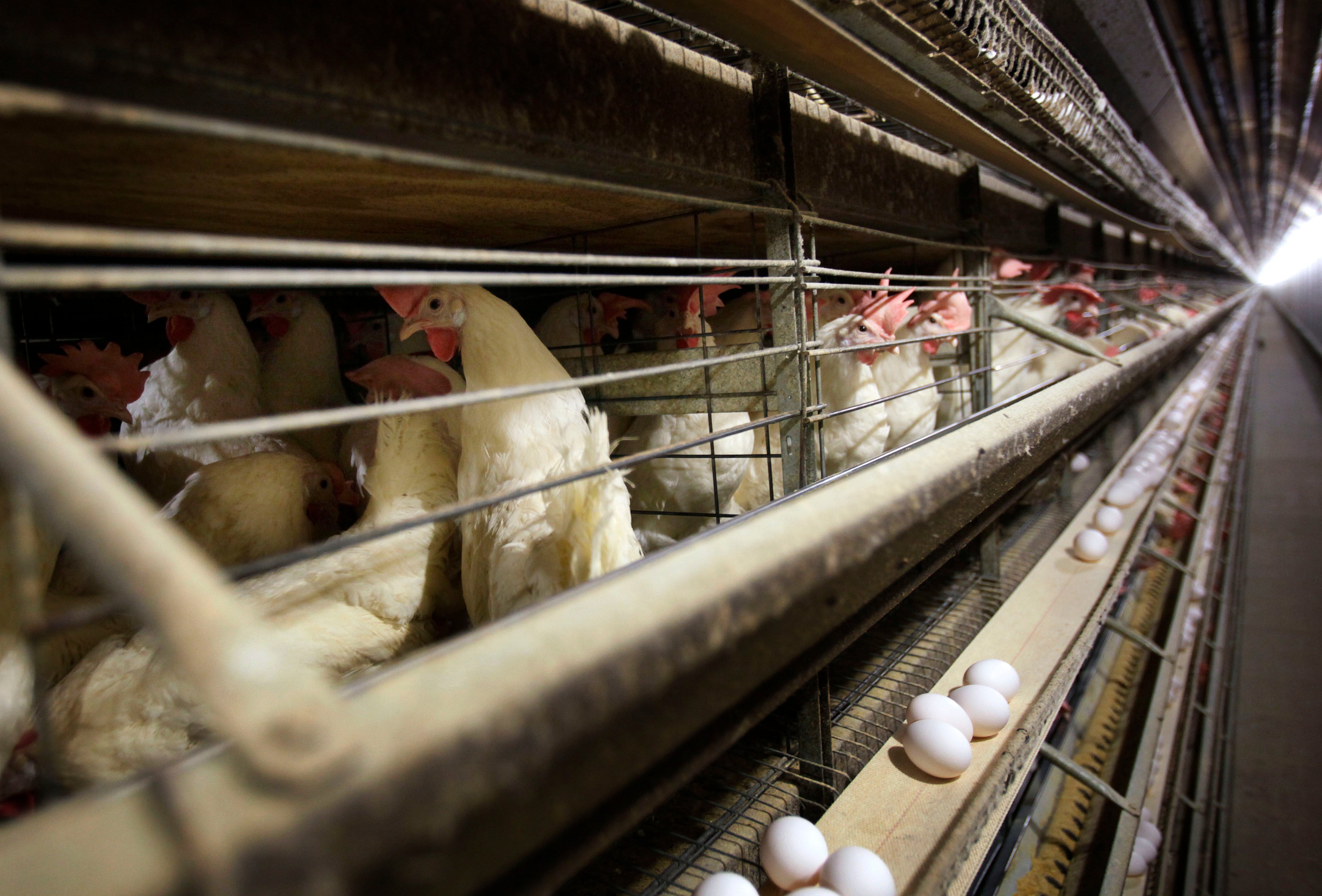More than four million chickens to be killed after bird flu hits egg farm
Bird flu has become somewhat common among poultry, but its spread to cattle has added to worries about the disease

Your support helps us to tell the story
From reproductive rights to climate change to Big Tech, The Independent is on the ground when the story is developing. Whether it's investigating the financials of Elon Musk's pro-Trump PAC or producing our latest documentary, 'The A Word', which shines a light on the American women fighting for reproductive rights, we know how important it is to parse out the facts from the messaging.
At such a critical moment in US history, we need reporters on the ground. Your donation allows us to keep sending journalists to speak to both sides of the story.
The Independent is trusted by Americans across the entire political spectrum. And unlike many other quality news outlets, we choose not to lock Americans out of our reporting and analysis with paywalls. We believe quality journalism should be available to everyone, paid for by those who can afford it.
Your support makes all the difference.Farmers will have to put down more than 4 million chickens in Iowa after a case of the highly pathogenic bird flu was detected at a large egg farm.
The state announced the news on Tuesday.
Crews are in the process of killing 4.2 million chickens after the disease was found at a farm in Sioux County, Iowa, making it the latest in a yearslong outbreak that now is affecting dairy cattle as well. Last week, the virus was confirmed at an egg farm west of Minneapolis, Minnesota, leading to the slaughter of nearly 1.4 million chickens.
Overall, 92.34 million birds have been killed since the outbreak began in 2022, according to the US Department of Agriculture.
Although bird flu has become somewhat common among poultry, its spread to cattle has added to worries about the disease. In May, a second dairy farmworker was diagnosed with bird flu, and the virus was detected in both beef and milk. It has been confirmed on dairy cattle farms in nine states.

Health and agriculture officials have said the risk to the public remains low. The US Department of Agriculture said the meat from a single sickened dairy cow was not allowed to enter the nation’s food supply and beef remains safe to eat.
Workers exposed to infected animals are at a higher risk. The only three human cases confirmed in the United States included two dairy workers and one man working to slaughter infected birds on a poultry farm.
A new dashboard to monitor the spread of bird flu has been released by the Centers for Disease Control and Prevention (CDC), as rates rise among dairy cows across the US.
The health agency draws on data from wastewater sampling sites that have tested positive for influenza A.
The newly-curated dashboard, released on Tuesday, presents the data in map form and compares positive tests in a region to the same time last year.
As of 4 May, the dashboard shows that higher-than-average levels of the virus have been detected at 189 wastewater sites across the country.
The US Department of Health and Human Services announced last week that it would pay farms $28,000 each to allow officials on-site to test cattle for bird flu to persuade more farmers to come forward.